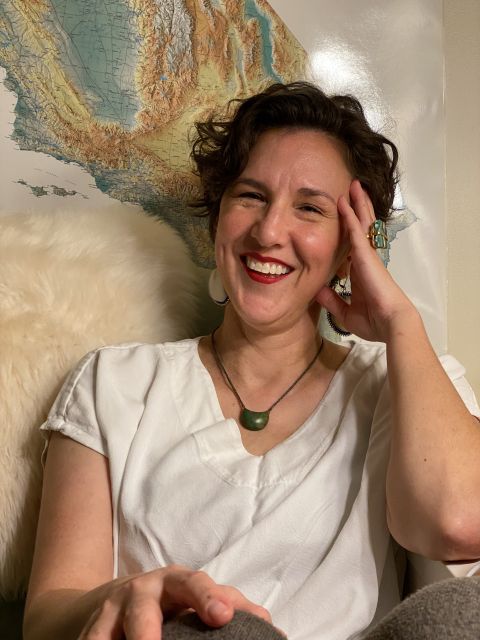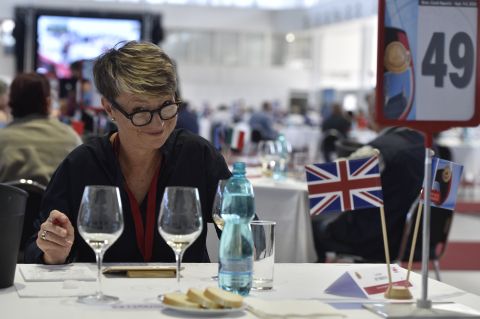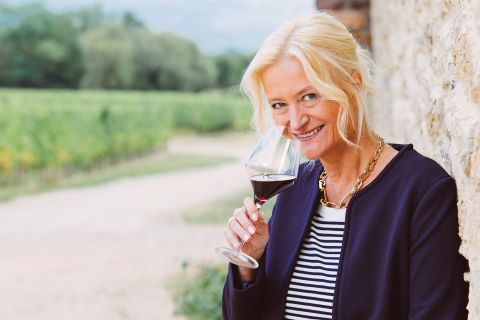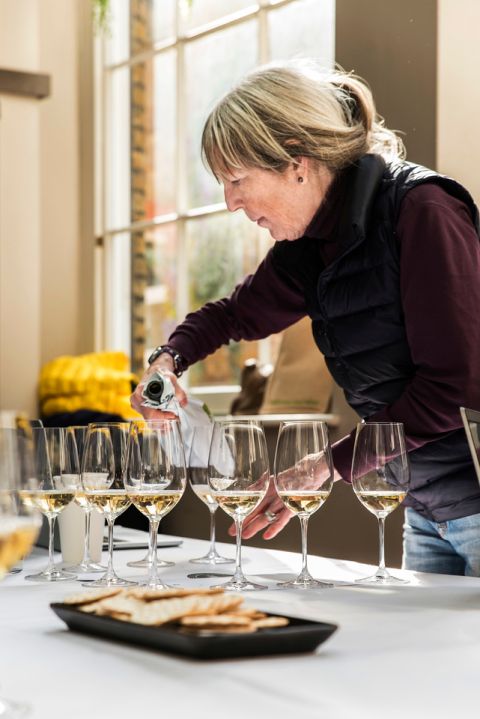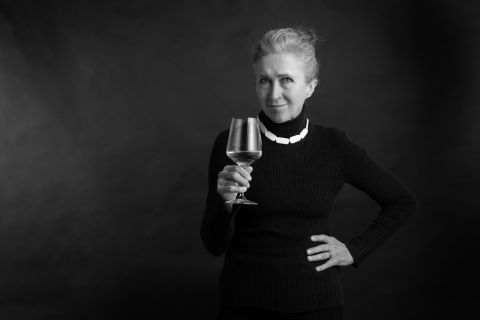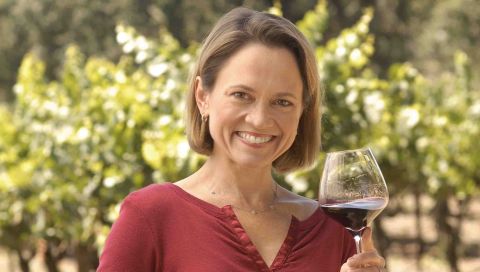At JancisRobinson.com, we’re quite lucky to be a nearly all-female crew, and the men working with us couldn’t be better workmates. Gender, in fact, isn’t even something we think about much, until we look outside. Though we’ve come a long way – there are nearly as many female MWs now as there are male (46% v 54%) – anyone attending an industry wine tasting can quickly tell that men still outnumber women in this business. And, as Jancis reported late last year, it’s not always a friendly place for a woman to be, citing a recent survey that concluded that ‘78% of [women in the wine trade] feel that sexism, gender bias and harassment are serious issues in it, with 44% of respondents saying they had considered leaving the trade as a result’.
This makes us all the most thankful for the community Jancis has fostered at JancisRobinson.com, as well as for all the women who have helped us on our way here. Today we’ve called out a top few who’ve made a special difference to us, who’ve shaped us and encouraged us and continue to do so years – or even decades – later.
We also have a call to action: last year, we reported on an effort to increase the number of women in wine in Wikipedia. Recently we caught up with Anjali Douglas, events manager for the Wine and Spirits Education Trust (WSET) in London and the impetus for the project. She’s reported that uptake has been slow and low, because, she explains, ‘articles seem to get routinely rejected if the user has not built up a history of edits to existing articles. The vast majority of our sign-ups to this project were women who were new to Wikipedia (a good thing, 91% of Wikipedia editors identify as male) – I believe this is why we did not end up with a larger number of published pages.’
Her suspicions are confirmed by Robyn Vinter, who reports in a recent article in The Guardian that this issue extends to women in every industry. ‘Less than 20% of the biographies on English language Wikipedia are about women, although this is an improvement on 16% in 2014’, she says, and points out that ‘only a fifth of its 124,000 regularly active editors are women.’
Furthermore, Wikipedia’s standards for publication, while admirable, can work against the inclusion of women subjects in that it requires that, ‘Sources used to establish notability must additionally demonstrate significant coverage: they must discuss your subject for a while, at least multiple paragraphs. A mention in one or two sentences, or the appearance of your subject in a table or list is not enough to help establish notability.’ (See here for full text.) That makes a lot of sense, except that women are less likely to have been covered in the press in the first place …
There are many other reasons for the disparity (see Wikipedia’s well-researched 4,625-word essay on Gender bias on Wikipedia). But the upshot is this: it’s in the hands of the women of the wine world to raise each other up. If you can find the time (another area of documented gender disparity), start writing and editing Wikipedia entries. But if that’s not in the cards, it’s OK. As you can see from each one of these anecdotes, sometimes all it takes is giving warmth and encouragement to another woman in the industry.
Sam Cole-Johnson on Elaine Chukan Brown
I don’t know if it’s outlook or if it’s just good luck, but life has almost always given me the person I needed most at the time that I most needed them. On 4 November 2021, I needed Elaine Chukan Brown. Brown served as our executive editor US for most of 2022, is an incredible speaker, is a board member for the Wine Writer Symposium, co-founded the Diversity in Wine Leadership Forum and is, generally speaking, a very impressive human. But that’s not why I needed them. I needed Elaine because I had just, the day before, become aware that I had no idea what I was doing.
While I’ve written for JancisRobinson.com since 2019, my first ever wine reviews were submitted on 3 November 2021 (published on 8 November). I was worried about being fair, letting people down, having people I respected upset with me. Elaine was the first person to tell me that reviewing would likely always be uncomfortable and that, at the end of that day, the best I could do was make sure that in reviewing, as well as in writing, I’d done my homework and produced something that was as close to the truth as I could possibly make it.
In the years since, I’ve called Elaine more times than I can count. They’ve cautioned me not to form conclusions on individuals based on the opinions of others, advised that the best defence to negativity is not to engage, and reminded me that to make real change you must serve people in need, not just people in power. It is because of Elaine that I’ve realised that inspirational individuals make you see that you can accomplish something, advocates give you the platform or opportunity to do it, and mentors are the ones who ensure that you’re capable of weathering the storm once you get there.
Tamlyn Currin on Louise Hurren
I met Louise Hurren in October 2008 on a triple-masted wooden schooner in St Katherine’s Docks, London, on my very first official tasting for JancisRobinson.com. I was terrified, feeling totally out of my depth – I’d just walked away from the world of tech where I’d been managing a huge team of people, but that seemed easy by comparison with writing about wine. Louise was handling the PR for the event. Even though she would have no doubt preferred Jancis to be there, she was warm, welcoming and put me at ease. Shortly after that she invited me to come to Millésime Bio in Montpellier – my first work trip and my first trip to the Languedoc.
Louise has been a constant part of my wine life ever since then. What I have always found inspiring is her quiet, thoughtful intelligence, her curiosity, her sharp perceptions, but also her gift of withholding judgment and being outstandingly diplomatic. When we met, Louise knew a little about wine but had superb communication skills (she speaks French like a native); now she knows so much about wine she teaches courses at Montpellier University. ‘Do you think I should do my WSET?’, she asked me on one of those very early trips, after translating for me at a winery and getting stuck on some of the technical terms and concepts. ‘Yes!’, I said. What stayed with me, then and now, is that Louise has never been afraid to not know something. When I was afraid that it would be obvious to others in the wine trade that I was only a beginner, Louise was completely comfortable asking questions. I learned a lot from her about modesty, humility and just being where you are. I have also learned from her the power of curiosity and how to gently probe for the answers behind the answers – another Louise gift. Lastly, she’s positive, upbeat and looks for the best. Her Instagram always reminds me what’s good about the wine world.
Florencia Gomez on Caro Maurer MW
Someone who has profoundly impacted my journey as an MW student and female in the wine industry is Caro Maurer MW. In 2017 I became interested in the MW programme, inspired by another great woman, Madeleine Stenwreth MW. However, it wasn’t until 2019 that I gained the courage to attend an MW introductory course in Germany’s Rheingau with Caro. Despite my doubts and lack of confidence, she gave me the encouragement I needed to apply, and I have been lucky enough to have her as my mentor since then.
Caro is the kind of person who leads by example, translating intentions into actions. Her dedication to mentorship has been game-changing for me, especially during the most challenging times. Throughout the pandemic, she took the time to send wine samples across Europe, keeping her students motivated and connected to each other. Every year, she puts together an annual training boot camp before the exam for us, her mentees. She has created a community that genuinely feels like family. Although she’s always busy, she shows up time after time for a quick call with wise advice, giving us a gentle German push and supporting us when life just happens. By being true to her words, thoughts and actions, Caro’s integrity highlights the hugely transforming power of mentorship. I will always be grateful to Caro for that.
Julia Harding on Patricia Stefanowicz MW
It was late one night in the middle of the second-year MW residential course in Bordeaux. I was tired, dispirited and ready to give up on the spot. All those around me seemed to be confident tasters and self-assured students. What to do? I phoned my mentor Patricia Stefanowicz MW, who talked me down and persuaded me to review my decision back in London. It was typical of Tricia that she neither complained about the late hour nor belittled my anxiety. Having met her while I was studying for my WSET Diploma in the late 1990s, I knew she would be a great mentor.
Patricia is a highly competent American-born architect and engineer and Master of Wine who manages to keep one foot on each of the paths she has chosen. She shares her time between France and London and her list of current activities would fill a column or two, ranging from healthcare-related construction to advising the Thames and Chilterns Vineyards Association and wine judging, plus she continues to teach and mentor another generation of fretful students.
For me she was an immensely supportive – and challenging – mentor, running group blind tastings in her flat in London and covering my essays in red ink, even offering me a place to stay during the MW exams. I am immensely grateful for her generosity and for inspiring me to persevere.
Jancis Robinson on Rosa Kruger
I continue to be inspired by the hard work, values and determination of Rosa Kruger. It was Kruger who went to the trouble, by inspecting ancient records, of precisely identifying South Africa’s rich heritage of old vines and making sure their produce was made available to the Cape’s brightest young guns. Eben Sadie of the hugely successful Sadie Family was an early protegé.
This gave rise to the Old Vine Project, which is a model information source that has had repercussions around the wine world. The great great granddaughter of former president of South Africa Paul Kruger is proud to explain her interest in vines thus: ‘I come from a family of lawyers and farmers.’ As outlined in my 2013 profile of her, she studied law herself and, although she has had no formal training as a viticulturist, she learned how to nurture vines, especially old vines, firstly from determinedly nagging the right academic specialists to teach her and then from infinite experience. You don’t cross Kruger – as an armed intruder once found.
All of this makes it strange that when she came for dinner with us recently in King’s Cross, a busy and now rather civilised area of London, she could hardly believe that, after walking her to where she could get a taxi, I would be fine walking back to our flat alone. (This says more about contemporary South Africa than about the indomitable Kruger.)
At a time when the spotlight was trained on the cellar rather than the vineyard, she has been responsible for a re-evaluation of viticultural skills and is now busy passing them on to those who will benefit most from them, previously disadvantaged Cape workers for whom this is often their first experience of useful education.
Tara Q Thomas on Andrea Robinson MS
The day I walked into an industry tasting and saw Andrea Robinson MS with her kid on one hip and a wine glass in the other hand is the day I knew I could stay in this business. The wine industry in late 1990s NYC wasn’t the most welcoming place for a young woman (example: the importer who said, ‘oh, how cute, you’re still here!’ when I showed up to his tasting for the second year in a row). Sure, Andrea was way ahead of me – a Master Sommelier (one of fewer than 25 out of 143) and the first women ever to be named Best Sommelier in the US, who ran one of the city’s finest cellars at Windows on the World. But it still struck me as incredibly ballsy to show up to a tasting with her kid in tow.
That moment made me realise that it didn’t matter if others were going to be catty or obnoxious. I could be like Andrea – I could be myself. Andrea has always stood out for her complete lack of pretentiousness. She isn’t the sort who asks questions just to show off how much she knows; she meets every person and every wine with a positive curiosity. In blind tastings, where it’s always safer to criticise than to praise, she never hesitates to speak up for wines she believes in, and no wine is beneath her attention. The same goes for people: everyone, from glass washer to CEO, gets a warm hello. Through Andrea and the many people she mentored at Windows, I found a welcoming wine community; through her open-armed, humble approach to wine, underlined in her many books, videos, classes and events, I found a model to emulate.
Image at top is the official 2024 logo for International Women's Day. Photo of Rosa Kruger by Danie Nel Photography; photo of Andrea Robinson MS by John McJunkin.


